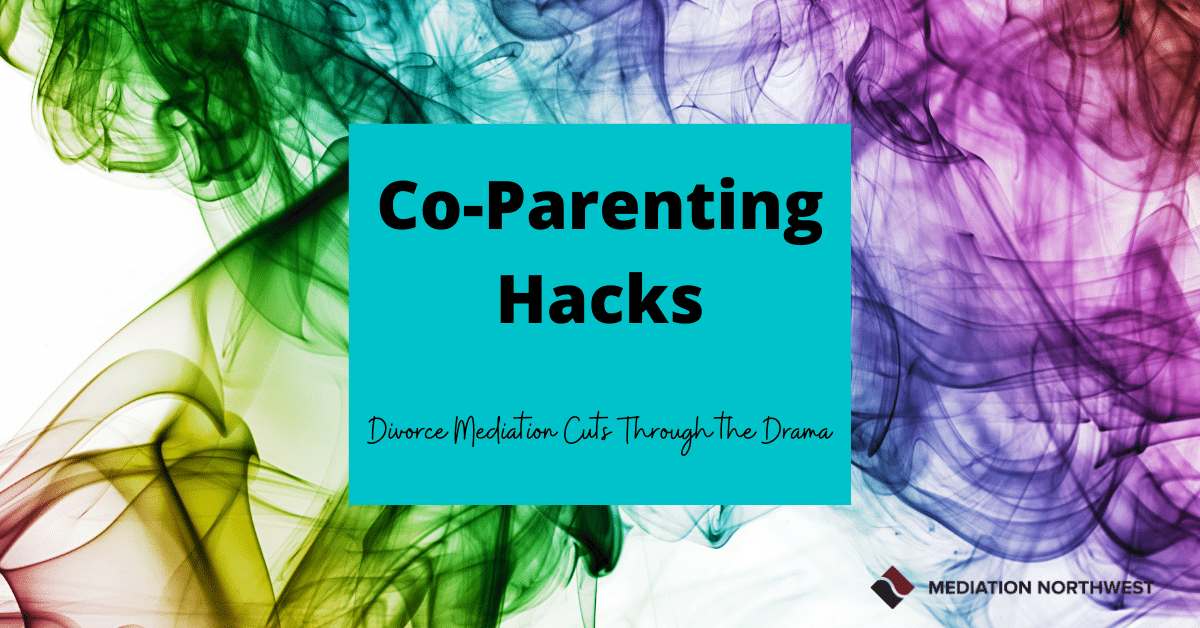
I know a lot of co-parenting hacks because I’ve been a divorce mediator for over twenty years and I am also a co-parent. Keep reading for concrete steps help you navigate co-parenting like a rock star.
Shared Calendar. In my marriage, I was better at organizing the kids’ events than my former spouse. So, when we moved into a co-parenting relationship, I didn’t expect him to instantly become good at something he rarely did. Instead, I set him up for success and showed him how to use the shared calendar. He wasn’t great at knowing this stuff before, but now, with the shared calendar, he is the understudy to the rock star. I used a Google calendar, but you can use any shared calendar.
Shared Expense Spreadsheet. In my marriage, I also was the primary spender for the kids. That didn’t change much after the divorce, either. The best way I found to request reimbursement from my co-parent was to create a shared spreadsheet. Each month, we each add expenses to the spreadsheet. Then, at the end of each month, the spreadsheet shows who owes money to whom. It took the drama out of the request for reimbursement. Click here for the spreadsheet that I use for myself and that I suggest that my clients use, too.
Ask, Don’t Tell. When communicating a co-parenting switch, don’t tell the other parent it is happening. Instead, communicate the problem and then ask if the other parent is willing to switch. I routinely have clients say to me, “I didn’t care if s/he wanted to switch weekends. I was angry that s/he TOLD me it was happening and didn’t ASK me. I am no longer married. I don’t have to do what s/he wants.” So, if your goal is to get a change to the parenting plan, ask… don’t tell.
Not the Golden Rule. Although the Golden Rule of treating someone else as you want to be treated is a very good rule, for co-parenting, it is best to treat your co-parent how your co-parent wants to be treated. Maybe you want your co-parent to communicate when s/he picks-up the kids from school. But… maybe your co-parent doesn’t want that level of communication. It’s important to clearly communicate the level of communication you need and then listen to the level of communication your co-parent needs. It doesn’t have to be equal or the same. It needs to work for each person. For instance, if mom wants a text that the kids have been picked-up from swimming, but dad doesn’t want another text, then dad should text mom when he picks-up the kids and mom should refrain from texting dad when she picks-up the kids. This way, each party gets what they need.
Tone and Sarcasm and Threats, Oh My! You know what isn’t helpful when communicating to your co-parent: using tone, sarcasm, threats, cussing, and passive aggressive communication. Don’t get me wrong, I can cuss like a sailor, but every communication style has its place. Cussing when negotiating about your kids isn’t the time. It (almost) goes without saying that using tone, threats, or being passive aggressive doesn’t work, either. Name me a time it worked with your co-parent? I’ll wait… It has never worked, has it? And… it usually escalates the situation creating more drama than you intended. Here’s the rub. It initially feels very satisfying, but long-term it creates much more drama than the feeling of satisfaction.
So, communicate in the most neutral way possible. Leave out the name calling, the adjectives, the blaming, the threats, and any other colorful words.
You have two goals: (1) for your kids to have the best experience with both parents, and (2) solve a problem that you are communicating to your co-parent.
Ghosting and Bombing. If you and your co-parent have engaged in ghosting (i.e. ignoring and failing to respond to texts or calls) or bombing (i.e. repeated calls or texts), then you may need to find a good mediator to help you through the problem. Most likely, one person isn’t getting his/her needs met. The questions then become: (1) is the co-parent’s need a reasonable need? and (2) what solutions exist that both parties can live with? In short, don’t ghost your co-parent or bomb your co-parent. It isn’t effective and has never once solved the problem. If you are experiencing this problem and you can’t communicate in a healthy way with your co-parent, it’s time to call the mediator.



